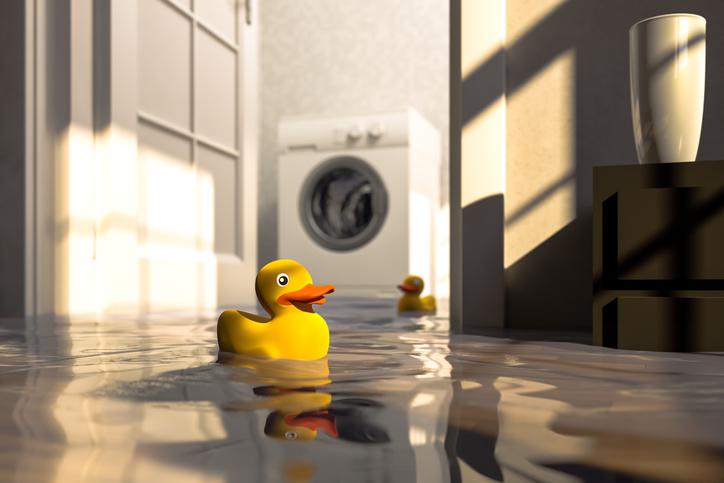
A basement serves an important purpose in your home. In addition to giving you more storage space, they often hold some of your home’s most vital appliances – washers and dryers, furnaces, water heaters.
Unfortunately, it’s also the part of your home that is most likely to flood in the event of heavy rain or other severe storms. And it can mean a huge mess on your hands.
Let’s take a look at how you can prevent this from happening, and keep your basement dry.
Pay attention to your sump pump: A sump pump is your basement’s best line of defense against excess water in your basement. But they need regular maintenance. Common issues can include broken or improperly set float switches, faulty check valves, a lack of backup power, or continuously running pumps. Your local plumber can make sure your sump pump is ready for whatever nature can throw its way through regular testing and a maintenance plan.
Examine your home’s foundation: Water can easily come flowing in through any cracks in your foundation and onto your basement floor, so if you see any, repair them immediately.
Take a look at your landscaping: If the surrounding land is sloping toward your house, your basement is at risk of flooding. You may need to regrade your yard to keep water from flowing into your basement.
Clean your septic system, if you have one: Maintaining your home’s septic system is just as important as keeping up with your sump pump. Regular maintenance will help you prevent sewer backups.
Clean your gutters. This is a chore no one likes, but clogged gutters full of leaves and other debris can overflow, often right into your basement.
Install window well covers. These will protect your basement windows and keep the inside of your house dry.
Does insurance cover basement flooding?
Homeowners insurance generally doesn’t cover flooding, though you’ll need to check with your carrier to be sure. You’ll likely need a separate flood insurance policy.
According to FEMA, the National Flood Insurance Program (NFIP) defines a basement as any area of a building with a floor below the natural ground level on all sides. In the event of a flood, flood insurance will cover appliances, including sump pumps, well water tanks and pumps, oil and natural gas tanks, furnaces, water heaters, air conditioners, and heat pumps, under building coverage. Washers and dryers, and freezers and food inside them, are covered under contents coverage.
Flood insurance won’t cover items that aren’t considered necessary for the home’s safety, such as carpet, furniture, or other cosmetic details.
If you’re concerned your home isn’t fully protected against a potential flood, contact Benjamin Franklin Plumbing. We can come out and recommend changes you should make. Request an appointment or call us at 1-877-BEN-1776.
